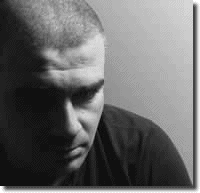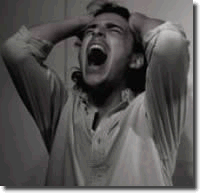
Heroin Withdrawal
Heroin withdrawal occurs when a habitual heroin user reduces his daily dose or discontinues heroin use altogether. Heroin withdrawal may set in within 6 to 24 hours of discontinuation from use; however, this time frame can vary depending on the degree of tolerance as well as the amount of the last consumed dose. Heroin withdrawal will usually peak between 48 and 72 hours after the last dose. Within a week, physical withdrawal symptoms should subside, although the individual may experience some residual weakness and pain. Although the physical withdrawal symptoms may be over at this point, the brain still needs to re-learn the process of creating endorphin production which the user has been substituting with heroin. This can take an additional two weeks to two months until the body stabilizes its endorphin production. It is only after restoring this brain chemistry that former heroin user can really feel good, however, he or she will still have a psychological addiction to heroin.
Heroin Withdrawal Symptoms
Common heroin withdrawal symptoms include: nausea, vomiting, diarrhea, intense insomnia, chills, a runny nose, goosebumps, sweating, watery eyes, aches and pains in the muscles and joints, extreme restlessness, frequent yawning, abdominal cramps, dilated pupils, and overall flu-like symptoms. Additional secondary heroin withdrawal symptoms may include: dehydration, loss of appetite, weight loss, nervousness, extreme weakness, decreased body temperature, and light headedness. Many individuals also experience psychological symptoms including anxiety and depression, with severe cravings for the drug. Heroin withdrawal can also cause muscle spasms and restless twitches in the legs which causes the person to kick (“kicking the habit”). Heroin withdrawal symptoms can be extremely uncomfortable but they are not considered "life threatening" except in very rare circumstances such as when pre-existing serious health complications are also present during the heroin withdrawal process.
Heroin Withdrawal and Relapse
Attempts to stop using heroin will commonly fail simply because the heroin withdrawal process can be overwhelming, causing the addict to use more heroin in an attempt to overcome these symptoms. These overpowering heroin withdrawal symptoms can cause the addict to do anything to get heroin. Additionally, the initial physical withdrawal symptoms are not the worst aspect of attempting to quit heroin abuse because on the other hand, psychological cravings can also overcome the former user throwing him or her into relapse. To quote Alfred Lubrano of the Knight Ridder/Tribune News Service: "The smell of burned matches, the sight of a $10 bill (the price for a 'dime bag' of drugs), even those 'Just Say No' anti-drug posters with a crossed-out needle, all act as potent cues that could bring even long-clean addicts to their knees, screaming for dope." Scientists have actually shown films to recovering addicts while monitoring the their brain activity. The results: Watching someone else use drugs, even on a film, triggers activity in the parts of the brain that govern motivation and craving.
Heroin Withdrawal and Recovery
Heroin withdrawal can be painfully intense so it is highly recommended that the person seek care in a drug detox facility where medical professionals can medically manage and minimize the symptoms associated with heroin withdrawal under 24 hour care and supervision as well as help the individual get through the intense "cravings" without giving in to relapse. The chances of a successful recovery without professional help are extremely slim, however, if you or someone you know is planning on quitting heroin "cold turkey" without professional assistance, there are some helpful measures that can be taken to minimize the pain and discomfort of heroin withdrawal.
Some helpful actions to minimize heroin withdrawal symptoms are:
- Ask a close trusted friend to stay with you during the duration of the most serious heroin withdrawal symptoms. They will have to take care of you as if you had a really bad case of the flu.
- Keep plenty of fluids and easily digestible foods at hand. Sports drinks, bottled water, yogurt, soups, oatmeal, popsicles, etc. These are plain foods that are easy on your stomach and senses while you are going though heroin withdrawal. It is extremely easy to get dehydrated so keep this in mind. Also meal replacement shakes may be a great way to deliver nutrients when full meals aren't easily consumed.
- You may want to purchase medicine for nausea, diarrhea, or for any other heroin withdrawal symptoms you may incur.
- Frequent hot baths or hot showers can help tremendously during heroin withdrawal. This helps to calm the nerves, warm the body and soothe achy joints and muscles. It has also been said that adding Epsom salt to the bath water helps draw the drug toxins out of the body while replenishing essential minerals.
- The more severe heroin withdrawal symptoms tend to only last around three days, however residual effects will slowly continue to fade over a period of time. Remember to give yourself plenty of time for recover. Three days will most likely not be enough time. For the sake of your health, try to get as much time off as possible to aid in your recovery.
- Going to a drug treatment center is necessary for most heroin addicts to get through heroin withdrawal and overcome heroin addiction. Drug treatment centers provide therapy and counseling to help individuals understand addiction and how to prevent relapse in the future. Those who do not attend any type of treatment often find they are unable to cope with day to day sobriety and will most likely relapse.
Heroin Withdrawal Treatment
Effective treatment for heroin withdrawal starts at a heroin detox facility. One of the goals of an inpatient heroin detox facility is to manage and minimize the symptoms associated with heroin withdrawal. Heroin withdrawal detox facilities are prepared to handle these problems as well as dispense safe detox medications at a moment's notice. It is no longer necessary for a person to suffer while going through any kind of heroin withdrawal. It is important to note that heroin detox is only the initial necessary step in heroin recovery and heroin detox does not contain the necessary components of a full recovery program. It isn't until heroin detox is complete, that the addict can effectively participate in a comprehensive therapeutic heroin treatment program because the symptoms and cravings of heroin withdrawal need individualized attention and focus. Once heroin detox is accomplished, the addict is less influenced by the physical heroin withdrawal cravings and his thought process is clearer which now makes him capable of responding to further treatment.

.jpg)







